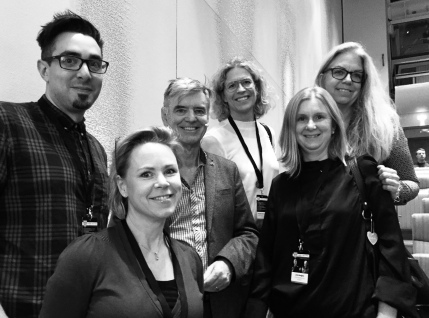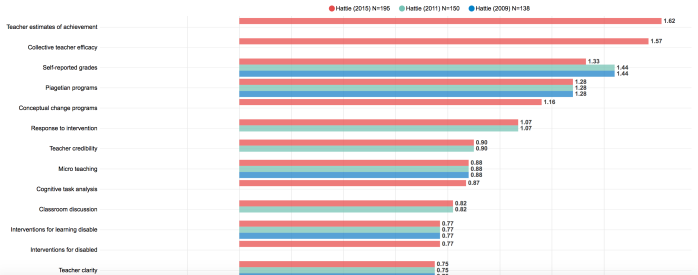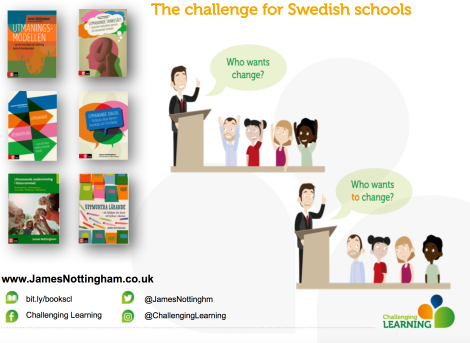article written by guest blogger, John DiMaria (Director of Innovation and Technology at Stiftelsen Viktor Rydbergs skolor)

Every teacher, student, parent and school leader has their focus on learning. Whether it’s grades, feedback, problem-based or individualized; the goal of schools is to empower students to learn. James Nottingham and John Hattie reminded our principal group this last Friday with their powerful and thought-provoking seminars based on their research, but in this, they also reminded us to continue to ask the right questions about learning.
Hattie’s story of his daughter-in-law resonated with the audience as he told of her journey into the teaching profession. He described an individual motivated by a strong desire to impact young people’s development, but who soon encountered the pitfalls of a shifting focus from student learning to something else entirely. All too familiar to many in the profession, Hattie explained the desire to create learning resources, to ensure marking was complete, to demonstrate that “I, the teacher” can be independent. Teachers are arguably one of the most vital factors to generating student learning, but in their essential role are they encouraged to ask the fundamental question: What do my students need?
What do students need in the learning process?
Hattie argued that affording teachers and students opportunities to work together on defining their impact on the learning process, developing common understandings of success, welcoming teachable moments for learning, and varying between surface and deep learning are methods to building this process. He collected these concepts under what he defined as “collective teacher efficacy,” but “how do we accomplish this” is perhaps the next question to ask ourselves. What Hattie’s research speaks to is a culture of sharing, of collaboration and of collegial learning to increase efficacy within an organization and the profession as a whole.

Measure growth, not grades
Grading and summative assessment are crucial elements to a student’s education. They provide students with information about their results, but how do we measure student learning? James Nottingham’s research deals largely with this question, though he defined it as measuring “progress” or “growth.” A student’s progress speaks to where they are now in their learning and where they will eventually be later on in time. Track growth, not grades felt like Nottingham’s mantra that day. It resonates and lies at the heart of the formative process that is our educational system.

Difficult to measure, but not impossible
Nottingham’s lecture also reflected upon the contrast between a system based upon letter values and end result and what society values most: happiness, sociability, curiosity, literacy and numeracy, it-literacy, health, creativity, resiliency, and possessing high ethical and democratic values. These societal values Nottingham mentioned are certainly difficult to keep track of unless we have the right tools to do so. Tools that stimulate the concepts of collaboration and the culture of sharing that John Hattie had discussed are not tools for the future but are within our grasp today. Digital tools aren’t necessarily a silver bullet to all issues we might encounter in education, but they are promising methods to reducing the administrative elements to the profession. Our current work with tools like Canvas and G-Suite have already demonstrated their abilities to assist us in sharing pedagogy and measuring student growth. It’s now to continue this focus into the future.

